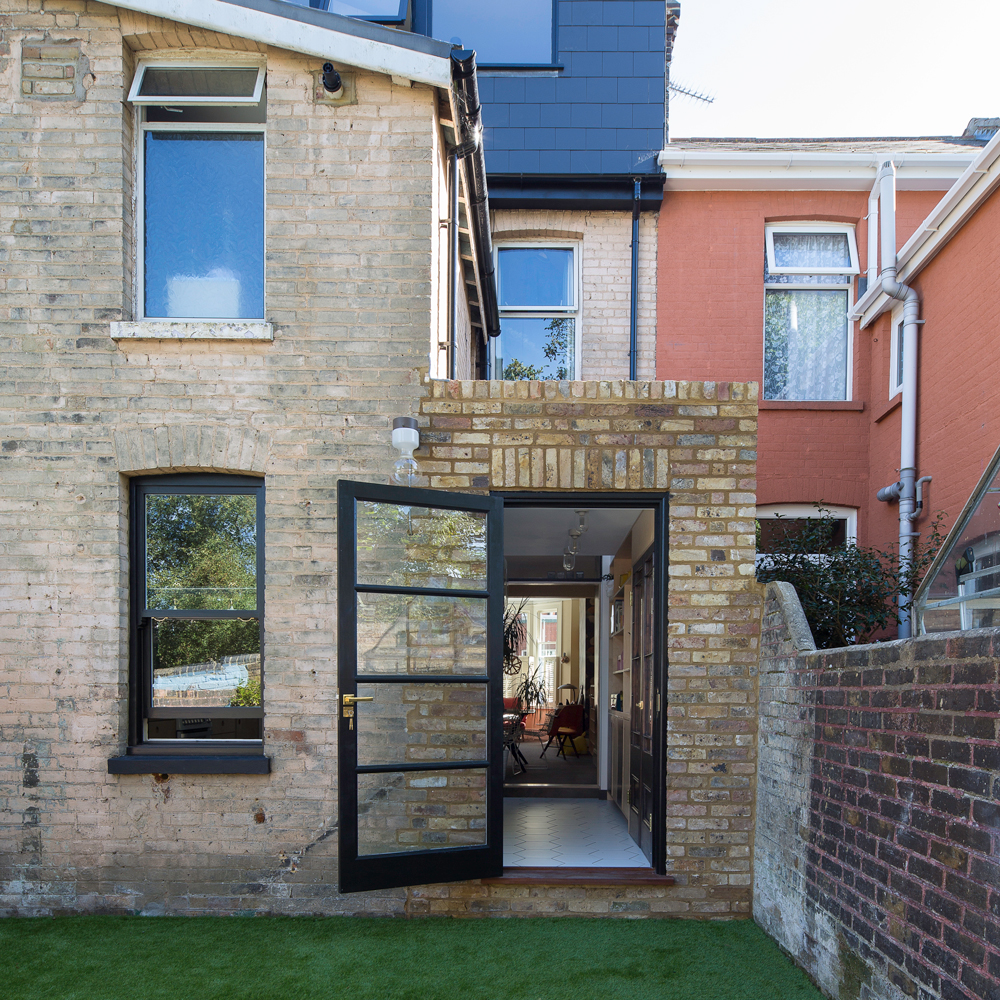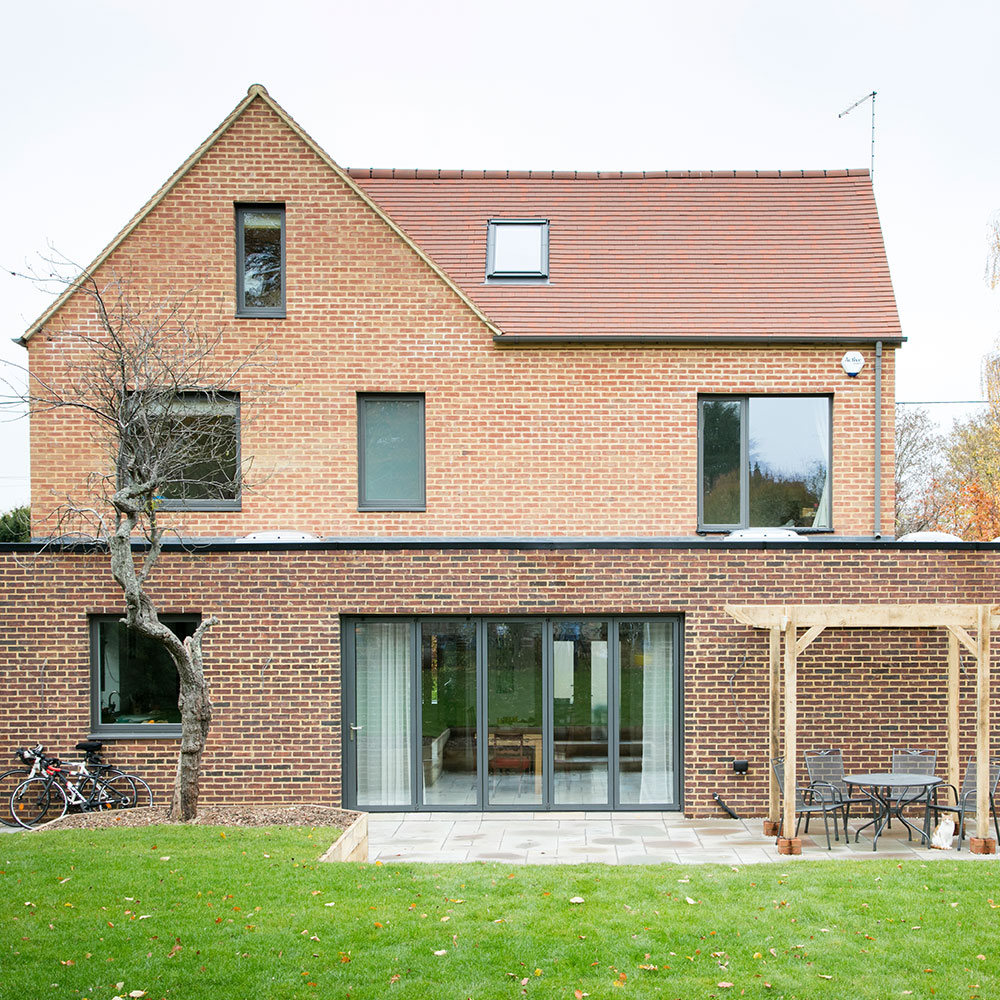What is buildings insurance? We explain all
Buildings insurance is a home insurance, not to be confused with contents insurance – here's why it's essential
Sign up to our newsletter for style inspiration, real homes, project and garden advice and shopping know-how
You are now subscribed
Your newsletter sign-up was successful
What is buildings insurance? And when do you need it and why? Are you looking for home insurance but left a little confused by the different types? Don't understand the difference between buildings insurance and contents insurance? You're not alone, it can become a minefield of insurance-know-how. We ask an expert to share an explanation in the simplest terms.
Buildings insurance, as the name indicates, covers the bricks and mortar and fixtures and fittings that build the house. NOT the contents that live within the property.
'Without home insurance, you could be left severely strapped for cash if you had to pay to rectify the damages or losses yourself' warns Financial expert Emily Perryman. 'According to the Association of British Insurers (ABI), insurers pay out a whopping £8.1 million every day to cover the cost of repairing homes and replacing contents.'
What is covered by buildings insurance?

'Buildings insurance covers the elements which make up the main structure of the home' explains Sarah Applegate, Data Lead, at Aviva General Insurance.
'If your home were to subside, burn, or be damaged by extreme weather, your buildings insurance policy would cover the costs of rebuilding or repair.' Building insurance covers the structural elements of your home, but additionally it does cover internal fixtures and fittings.
Sarah goes on to explain, 'It also covers any permanent fixtures in your home – like built-in wardrobes, kitchen surfaces, taps, basins, baths and showers. If they are damaged by the same events. Many policies also provide cover for outbuildings, boundary walls, gates, pools, drives and paths as standard.'
Buildings insurance is not to be confused with the other form of home insurance; contents insurance. 'Buildings insurance is different to home contents insurance which is designed to cover the possessions within your home' says Sarah. 'Such as furniture and furnishings, clothes, TVs and tech equipment.'
Sign up to our newsletter for style inspiration, real homes, project and garden advice and shopping know-how
Do I legally need buildings insurance?
'Having buildings insurance isn’t a legal requirement like Car insurance' explains Ryan Fulthorpe, home insurance expert at gocompare.com* 'However, it is usually a requirement of your mortgage lender to have home insurance in place.'
'Most property owners like the comfort of knowing that should the worst happen to their home, whatever that may be, fire, flood, or escape of water as examples they have the adequate cover in place to be put back to the place before the incident happened.'
Who pays for the building insurance?
'The building owner would be responsible for the building insurance,' says Ryan Fulthorpe. 'That may be the resident who owns the property be that outright or through a mortgage or the landlord of the property.'
If you're renting you are not required to seek buildings insurance. This is because it will be the responsibility of the land lord. If you live in a leasehold property it will be the case that buildings insurance will be the responsibility of your freeholder, who in effect is the 'land lord'.
This is because the insurance will cover the whole building for any damages etc. If you own one flat within a block, the cost will be split equally between the number of properties within the building. The costs of the buildings insurance should be covered by your ground rent each month.
'Home insurance policies are annual policies. So when you’re coming to the end of your contract term it’s worth seeing whether there’s a cheaper deal available' advises Financial expert Emily Perryman.

Does buildings insurance cover leaks?
'Some insurers cover leaks but others exclude them completely or just pay for certain elements' says Financial expert Emily Perryman. 'For example, they might cover the cost of removing parts of your property to locate the leak, but not for the cost of repairs once the leak is sorted.'
'If the insurer thinks the leak was caused by insufficient maintenance of the property, then a claim would most likely be rejected. Boiler repairs aren’t usually covered by standard policies, but you might be able to include your boiler as an add-on. Or you could take out a more comprehensive standalone policy.'
Emilly adds, 'Bear in mind that policies do vary, so make sure you compare what is and isn’t covered when you’re shopping around.'
What costs are not covered by buildings insurance?
'Buildings insurance is designed to pay out in the event of damage caused by an unexpected event such as a flood, fire, burglary etc. It does not provide cover for gradual damage caused over time – in other words, wear and tear' warns Sarah. 'All insurance policies have exclusions, and home insurance policies are no different.'
At times you'll need additional coverage too, such as insurance for building works when having work done on your home.
Financial expert Emily Perryman adds: 'Fences and gates are covered in most instances. But storm damage to fences is usually excluded.'
Sarah explains the most common examples of home insurance exclusions:
- Any deliberate damage caused by a member of your household.
- Damage caused by insects and other pests
- Damage caused by pets.
- Routine maintenance of your property, e.g. replacing sealant around the shower, or having your roof checked regularly.
Like with most types of insurance, buildings policies will require that you pay an excess in the event of a claim. An account for excess is agreed between you as the customer and your insurer. Paying a lower amount is an option, but it will mean you pay more in the event of a claim.
Excess is a standard process with all insurances. But Sarah adds 'The excess may be larger for certain types of claim, such as subsidence.'
These factors are determined by you and your insurance provider. This could play a key role in choosing your policy – dependant on the excess charges per insurer. When looking for any form of insurance it's best to shop around. Look for the best deal to suit your needs. Because not every homeowner is the same.
*Ideal Home and Go Compare are part of Future plc.
Tamara was Ideal Home's Digital Editor before joining the Woman & Home team in 2022. She has spent the last 15 years working with the style teams at Country Homes & Interiors and Ideal Home, both now at Future PLC. It’s with these award wining interiors teams that she's honed her skills and passion for shopping, styling and writing. Tamara is always ahead of the curve when it comes to interiors trends – and is great at seeking out designer dupes on the high street.